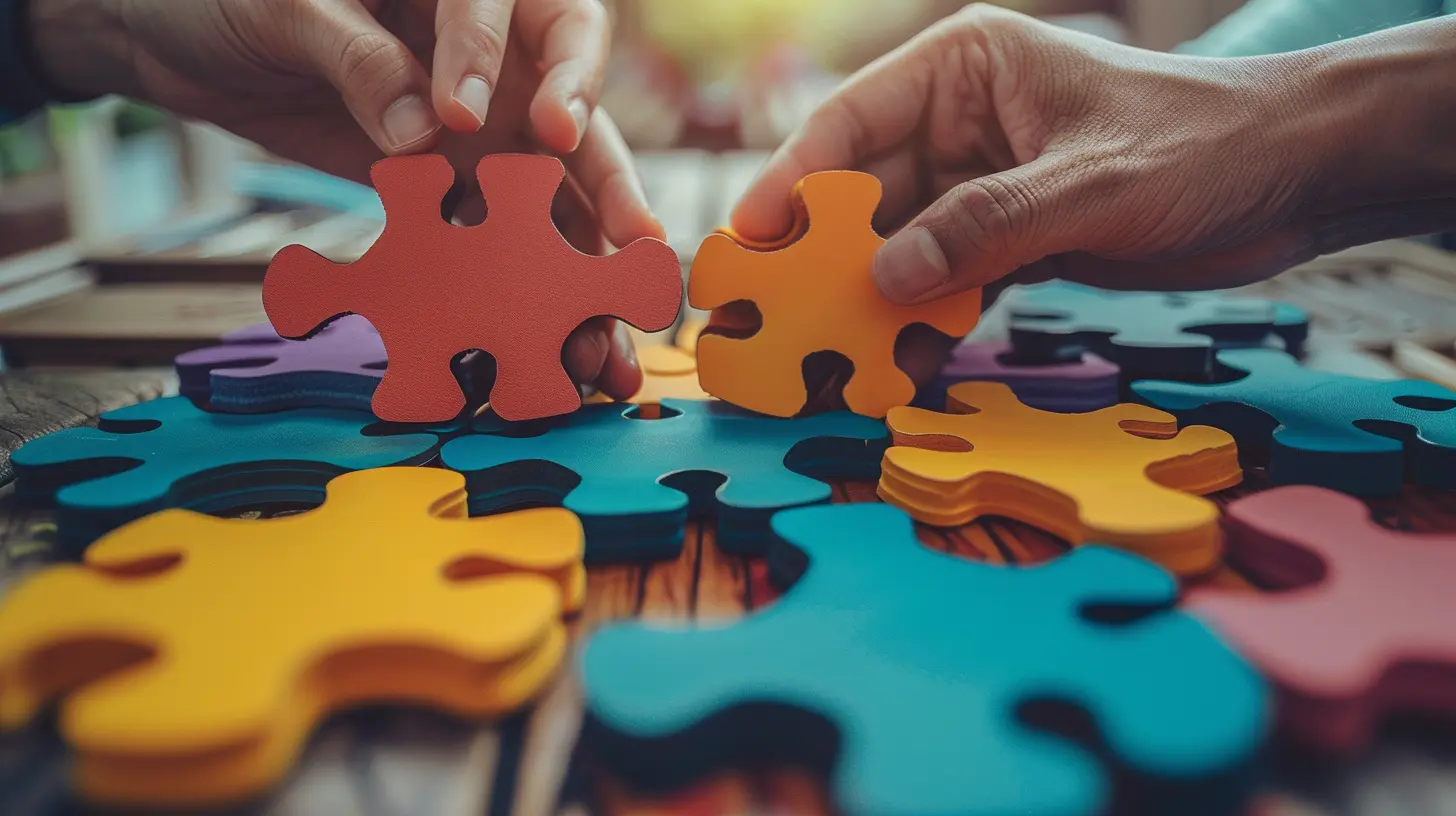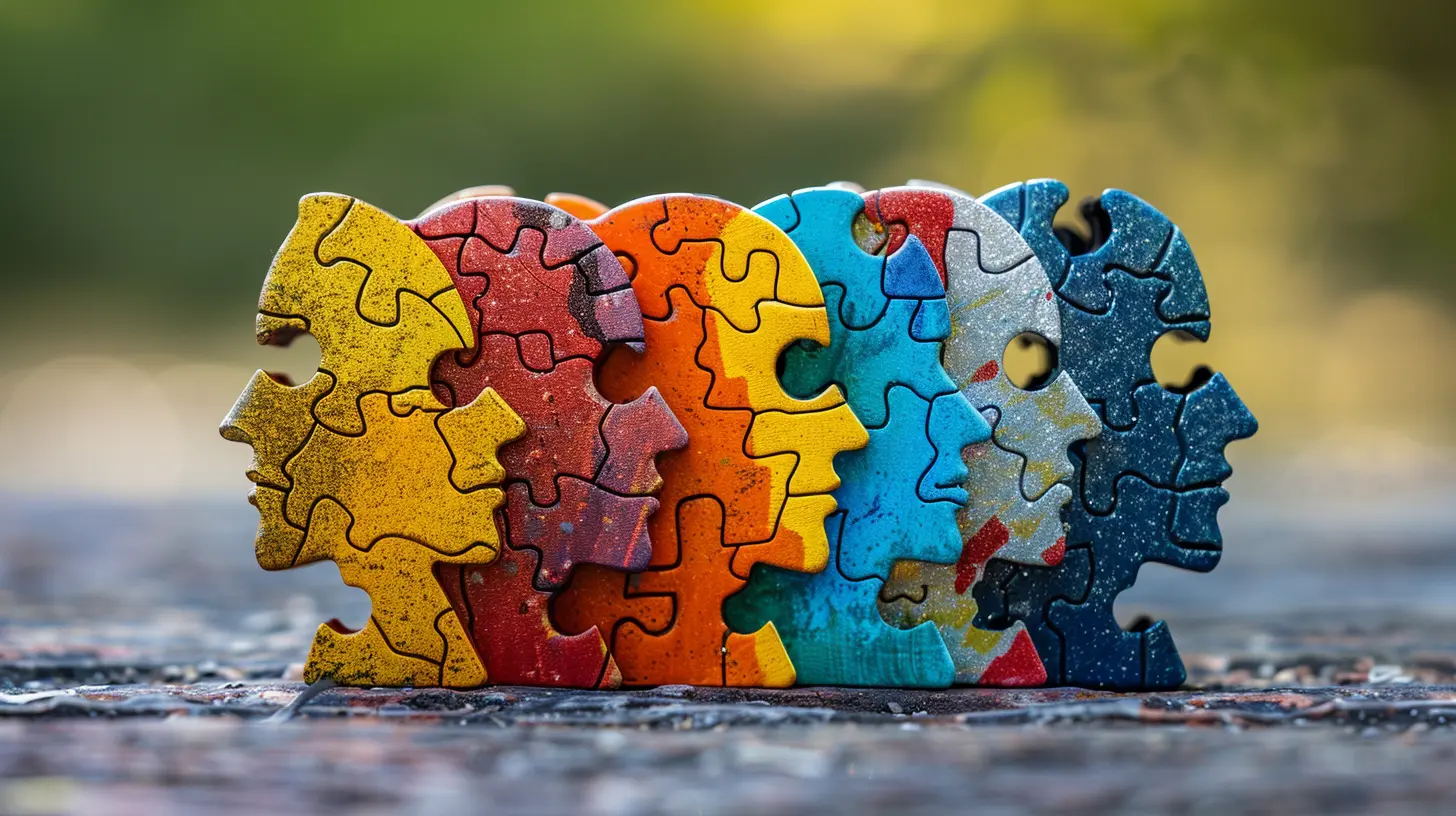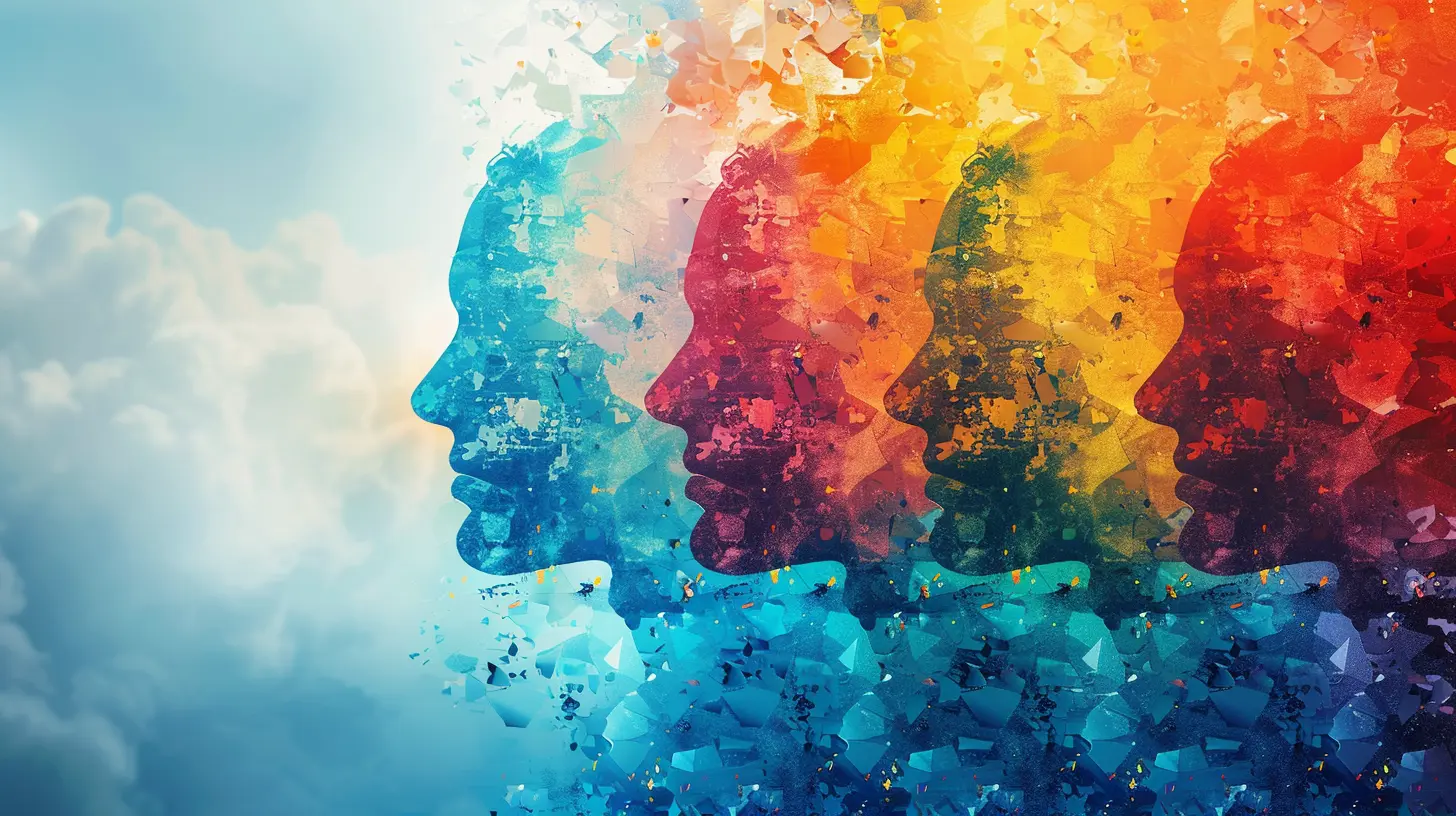How Emotional Intelligence Impacts Teamwork and Collaboration
6 July 2025
In today's fast-paced workplace, teamwork and collaboration are more important than ever. It's no longer just about individual performance; it's about how well you can work with others. But have you ever wondered why some teams just "click," while others struggle despite having all the right skills on paper? The secret ingredient might be something you can't measure on a resume: Emotional Intelligence (EI).
Emotional Intelligence is like the glue that holds a team together. It’s the ability to understand, manage, and express emotions effectively, both in yourself and in others. And believe it or not, it plays a massive role in how teams function—whether you're brainstorming in a meeting, handling a crisis, or celebrating a big win.
Let’s dive into the nitty-gritty of how emotional intelligence impacts teamwork and collaboration, and why it's crucial for creating high-performing teams.

What Is Emotional Intelligence (EI)?
Before we can understand the impact of emotional intelligence on teamwork, it's essential to know what it actually is. Emotional intelligence is essentially a set of skills that allows individuals to navigate their emotions and the emotions of others more effectively.Psychologists John Mayer and Peter Salovey first introduced the concept of emotional intelligence in the 1990s, and it has since gained mainstream popularity, especially with Daniel Goleman’s book Emotional Intelligence: Why It Can Matter More Than IQ.
EI is usually broken down into four components:
1. Self-awareness – Understanding your own emotions.
2. Self-management – Controlling your emotional reactions.
3. Social awareness – Recognizing emotions in others.
4. Relationship management – Using emotional understanding to build and maintain relationships.
Now, how do these skills translate into teamwork and collaboration? Let’s break it down.

The Role of Emotional Intelligence in Teamwork
1. Better Communication
Communication is the backbone of teamwork. It’s not just about what you say, but how you say it. Emotional intelligence helps you be more mindful of how your words affect others. Have you ever noticed how some people just seem to know the right thing to say, even in tense situations? That's emotional intelligence at work.When you’re emotionally intelligent, you’re better able to pick up on the non-verbal cues of your teammates, like body language or tone of voice. This helps you gauge how they’re feeling, which can be crucial when you’re trying to get your point across or defuse a potential conflict.
For example, imagine you're in a brainstorming session, and someone shoots down an idea you were really excited about. Instead of snapping back, a person with high EI might recognize their initial frustration and choose to respond in a more constructive way—perhaps asking a clarifying question or suggesting a tweak to the idea. This keeps the conversation productive and helps maintain a positive team dynamic.
2. Conflict Resolution
Speaking of conflicts, let’s be real: they’re bound to happen. When you bring together people with different personalities, work styles, and opinions, disagreements are inevitable. But here’s the thing—conflict doesn’t have to be destructive. In fact, it can actually be a good thing if handled correctly.This is where emotional intelligence comes in.
People with high EI are skilled at managing conflicts because they can keep their emotions in check and approach the situation calmly. They’re also more likely to empathize with the other person’s perspective, which helps in finding a solution that works for everyone. Instead of letting emotions spiral out of control, emotionally intelligent team members can steer the conversation toward a resolution that strengthens the team rather than tearing it apart.
Think of emotional intelligence as a buffer during conflicts. It softens the blow and prevents small issues from turning into full-blown arguments. In a team setting, this is invaluable because it helps maintain harmony and keeps everyone focused on the bigger picture.
3. Increased Empathy and Understanding
Empathy is one of the cornerstones of emotional intelligence. It’s the ability to put yourself in someone else’s shoes and understand how they’re feeling. In a team environment, empathy is like the oil that keeps the machine running smoothly.When team members are empathetic, they’re more likely to support each other, share the workload, and offer help when someone is struggling. This creates a culture of mutual respect and collaboration, where everyone feels valued and understood.
Imagine working on a project and noticing that a teammate is unusually quiet during meetings. Instead of assuming they’re disengaged, someone with high EI might take a moment to check in with them privately. Maybe they’re dealing with personal stress, or perhaps they’re feeling overwhelmed by the task at hand. By showing empathy, you not only strengthen your relationship with that team member but also help create an environment where people feel safe to express themselves.
4. Boost in Morale and Motivation
Ever noticed how the mood of one person can affect an entire team? That’s emotional contagion—when emotions, both positive and negative, spread like wildfire. A team with high emotional intelligence can use this to their advantage.Emotionally intelligent leaders and team members can inspire and motivate others by creating a positive atmosphere. They know when to offer praise, when to lend a helping hand, and when to give constructive feedback. This boosts team morale and encourages everyone to put in their best effort.
When people feel emotionally supported by their teammates, they’re more likely to stay engaged and motivated. It’s like having a built-in support system that pushes you to keep going, even when the going gets tough.
5. Enhanced Creativity and Problem-Solving
Creativity thrives in environments where people feel safe to express themselves. On the flip side, fear of judgment or criticism can stifle innovation. Teams with high emotional intelligence are more likely to foster a culture of psychological safety, where everyone feels comfortable sharing their ideas without fear of ridicule.When emotions are managed effectively, team members can focus on the task at hand rather than getting bogged down by personal insecurities or conflicts. This leads to more open-minded thinking, better brainstorming sessions, and ultimately, more creative solutions to problems.
Moreover, emotionally intelligent teams are better equipped to handle setbacks. Instead of panicking or pointing fingers, they remain calm and focused, working together to find a solution.
6. Building Stronger Relationships
At the end of the day, teamwork is all about relationships. And emotional intelligence is the key to building strong, healthy relationships within a team. Whether it’s through effective communication, conflict resolution, or empathy, emotionally intelligent team members are better at forming and maintaining the connections that make teamwork possible.When team members trust and respect each other, collaboration becomes second nature. They’re more likely to share ideas, offer feedback, and work together to achieve common goals. Emotional intelligence helps create this kind of positive, collaborative environment where everyone feels like a valued member of the team.

How to Cultivate Emotional Intelligence in Teams
So, now that we know how emotional intelligence impacts teamwork, the next question is: How can you cultivate it within your team? Here are a few strategies:1. Encourage Self-Awareness
The first step to improving emotional intelligence is self-awareness. Encourage your team members to reflect on their emotions and how those emotions impact their behavior. This can be done through mindfulness practices, journaling, or even regular check-ins where team members share how they’re feeling.2. Promote Open Communication
Create a culture where open and honest communication is encouraged. Make sure team members feel comfortable expressing their emotions and concerns. This not only helps resolve conflicts more quickly but also fosters a more collaborative environment.3. Provide EI Training
Many companies are now offering emotional intelligence training programs to help employees develop these crucial skills. These programs often focus on improving self-awareness, empathy, and communication, all of which are essential for effective teamwork.4. Lead by Example
Leaders play a crucial role in setting the emotional tone of a team. If you’re in a leadership position, make sure you’re modeling emotionally intelligent behavior. Show empathy, manage your emotions effectively, and encourage open communication. When team members see their leaders behaving in this way, they’re more likely to follow suit.5. Regular Feedback and Reflection
Feedback is key to improving emotional intelligence. Encourage team members to give and receive feedback about how their emotions and behavior are affecting the team dynamic. This can help individuals become more aware of areas where they need to improve.
Final Thoughts
At the end of the day, emotional intelligence is the invisible force that can make or break a team. It’s not just about being "nice" or "understanding"—it's about using emotional insight to communicate effectively, resolve conflicts, and build strong relationships. When teams are emotionally intelligent, they’re more likely to collaborate seamlessly, remain motivated, and innovate together.So, the next time you’re working on a team project, don’t just focus on the technical skills or the task at hand. Pay attention to the emotional dynamics as well. Emotional intelligence might just be the key to unlocking your team’s full potential.
all images in this post were generated using AI tools
Category:
Emotional IntelligenceAuthor:

Matilda Whitley
Discussion
rate this article
2 comments
Martha McKnight
Emotional intelligence significantly enhances teamwork and fosters better collaboration.
November 29, 2025 at 3:51 PM

Matilda Whitley
Absolutely! Emotional intelligence is key to understanding and managing emotions, leading to stronger connections and more effective collaboration within teams.
Lexi McInnes
This article beautifully highlights how emotional intelligence transforms teamwork. By fostering understanding and empathy, we can create stronger bonds and enhance collaboration. Thank you for shedding light on such an essential aspect of effective teamwork!
July 19, 2025 at 4:23 AM

Matilda Whitley
Thank you for your thoughtful comment! I'm glad you found the article helpful in highlighting the importance of emotional intelligence in teamwork.


